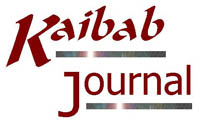|
|
Should
Mountain Line bus service be The Virtual Editorials - E13 (July 31, 2005) - Dennis Foster |
 |
|
|
||
| Introduction: The mass transit system in Flagstaff is funded through county sales taxes and administered by the city. The tax is a temporary one, and its renewal will be the subject of a vote, although I don't know when this will be. The managers of the system have been holding public meetings to test out some changes they would like to see happen, especially expansion of the system. | ||
|
|
||
|
Virtual Editorial #13 |
||
|
|
||
|
Some people never
learn. The efficient way to provide the goods and services we
want is to use market processes, not the “dead hand” of
government. Some people would like to use mass transit.
Great! Let them! Allow firms to offer a variety of transit
services – vans, shared taxis, on-demand services, peak-only
services, scheduled and unscheduled routes et al. Unless the
government has erected barriers to entry in this field, these services
will be provided as long as there are enough willing passengers to
make it profitable.
Buses are an
inferior transit mode – they can be carriers of far worse than
norovirus, are generally filthy, with many passengers being rude,
obnoxious, or of questionable hygiene and sobriety. Bus stops
are inconvenient to get to and from, especially if the weather is poor
and particularly problematic for shopping trips.
The
planner/politician’s answer to low ridership? More (tax) money
to expand routes. Take over part of downtown for a “passenger
transfer center.” Seize part of an already congested Beaver
Street to run buses into downtown. Aargh! Would someone
just poke me in the eye with a sharp stick!
And, please, kill
those awful flashing yellow lights on the back of the bus. |
||
|
|
||
|
Afterword: My Ph.D. dissertation
was on the subject of mass transit buses. One of the first
things you learn in this field is the idea of "cost."
In the case of city bus service, the cost is composed of two parts - the
capital/operational cost and the user cost. Note that only the
first is "paid" for from city/county tax revenue. In a
competitive market, a producer must take the user cost into account,
because surely the user will! If Wal-Mart were to hire only one
cashier, the cost of going there would rise, because now we'd have to
wait in line for a long time in order to pay for our stuff. So,
they have an incentive to provide lots of cashiers (and mechanical
ones now), taking on some of the user cost themselves. But, governments don't work that way. Instead, they ignore user costs. So, you get lousy bus systems (and DMV's, et al.). To use them, a rider must: (i) walk to the bus stop, (ii) wait at the bus stop, (iii) spend a long time traveling in the bus, (iv) maybe spend time at a transfer point, (v) walk to your destination from a bus stop. And, then do it all over again, if this is a commute. And, don't even get started with the idea of using the bus for shopping. How many people go to just one store when they shop? Using the bus for multiple stops is just a modern-day version of hara-kiri. I would have liked to spend more time on the "planner" issue here. The city government cannot hire a planner that says, "We don't need that." It is just a fundamental impossibility. Their job is to dream up new plans. The current manager of the bus system has a "goal" of 3% ridership for the buses (of all daily trips). Why? Does any of this ever get justified? It is like part of the government is on cruise control and it is very difficult to stop. By the way, norovirus is a type of flu that hit the NAU campus in the couple of weeks before this editorial. Also, the city surveyed passengers on the bus and their major complaint was . . . other passengers! The ones that weren't very clean and likely drunk. |
||
|
|
||
